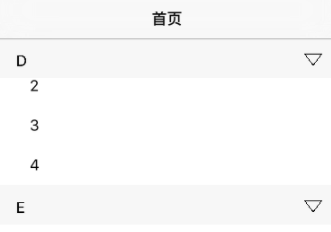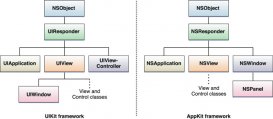0. 起源
开放授权(OAuth)是一个开放标准,允许用户让第三方应用访问该用户在某一网站上存储的私密的资源(如照片,视频,联系人列表),而无需将用户名和密码提供给第三方应用。
而作为第三方软件,为用户提供 OAuth 登录是更好的选择,可以有效打消用户对于个人账户密码泄露的顾虑,同时也能有效避免用户反复登录,进而增加用户的舒适度,提高用户粘性。
1. 环境
项目使用 MVVM 架构,引入了 Rx 全家桶,网络请求框架使用了 Moya ,以及处理 Oauth 相关的库 OAuth2 。
2. OAuth2 部分
参阅 OAuth2 库的 README ,完成 OAuth 的信息配置:
|
1
2
3
4
5
6
7
8
9
10
|
let oauth2 = OAuth2CodeGrant(settings: [ "client_id": "my_swift_app", "client_secret": "C7447242", "authorize_uri": "https://github.com/login/oauth/authorize", "token_uri": "https://github.com/login/oauth/access_token", "redirect_uris": ["myapp://oauth/callback"], "scope": "user repo:status", "secret_in_body": true, "keychain": false,] as OAuth2JSON) |
同时因为 Moya 的底层网络请求实现是基于 Alamofire,因此我们可以参照 OAuth2 提供的说明文档 Alamofire 4 · p2/OAuth2 Wiki · GitHub 完成相关配置,关键代码如下:
|
1
2
3
4
5
6
7
8
9
10
11
12
13
14
15
16
17
18
19
20
21
22
23
24
25
26
27
28
29
30
31
32
33
34
35
36
37
38
39
40
|
import Foundationimport OAuth2import Alamofireclass OAuth2RetryHandler: RequestRetrier, RequestAdapter { let loader: OAuth2DataLoader init(oauth2: OAuth2) { loader = OAuth2DataLoader(oauth2: oauth2) } /// Intercept 401 and do an OAuth2 authorization. public func should(_ manager: SessionManager, retry request: Request, with error: Error, completion: @escaping RequestRetryCompletion) { if let response = request.task?.response as? HTTPURLResponse, 401 == response.statusCode, let req = request.request { var dataRequest = OAuth2DataRequest(request: req, callback: { _ in }) dataRequest.context = completion loader.enqueue(request: dataRequest) loader.attemptToAuthorize() { authParams, error in self.loader.dequeueAndApply() { req in if let comp = req.context as? RequestRetryCompletion { comp(nil != authParams, 0.0) } } } } else { completion(false, 0.0) // not a 401, not our problem } } /// Sign the request with the access token. public func adapt(_ urlRequest: URLRequest) throws -> URLRequest { guard nil != loader.oauth2.accessToken else { return urlRequest } return try urlRequest.signed(with: loader.oauth2) // "try" added in 3.0.2 }} |
3. Moya 部分
Moya 的 provider 在初始化时可以传入 SessionManager ,因此参照文档,可以先使用 OAuth2 生成一个特定的 SessionManager :
|
1
2
3
4
5
6
7
8
9
10
11
12
13
14
15
16
17
18
19
|
func getManager() -> SessionManager { let oauth2 = OAuth2CodeGrant(settings: [ "client_id": "my_swift_app", "client_secret": "C7447242", "authorize_uri": "https://github.com/login/oauth/authorize", "token_uri": "https://github.com/login/oauth/access_token", "redirect_uris": ["myapp://oauth/callback"], "scope": "user repo:status", "secret_in_body": true, "keychain": false, ] as OAuth2JSON) let sessionManager = SessionManager() let oauthHandler = OAuth2Handler(oauth2: oauth2) sessionManager.adapter = oauthHandler sessionManager.retrier = oauthHandler return sessionManager } |
进而生成带 OAuth 的 provider:
|
1
2
3
4
|
fileprivate lazy var provider: MoyaProvider = { return MoyaProvider<API>(manager: self.getManager(), plugins: [NetworkLoggerPlugin()])}() |
使用
使用生成的 provider 发送请求即可,此时 Moya 可自动处理 OAuth 认证信息。
以上就是本文的全部内容,希望对大家的学习有所帮助,也希望大家多多支持服务器之家。
原文链接:https://akringblog.com/ios-moya-shi-xian-oauth-2-0-qing-qiu/
















